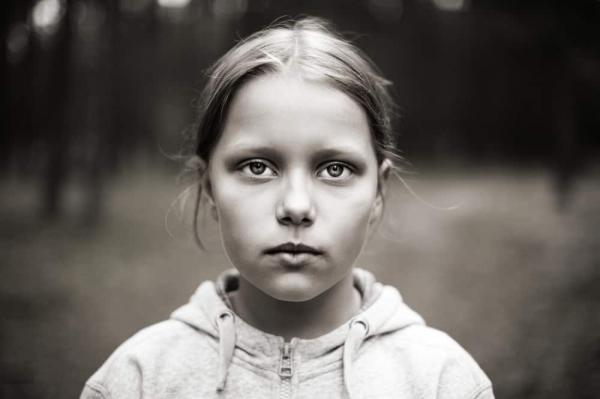
Anyone who has been around a child longer than 10 minutes knows they are hurricanes of emotion. They can go from gleeful giggling to a flailing tantrum in seconds. Because of this, it can be difficult to identify what's a normal emotional level in a child and what's abnormal. If you're not aware of the signs, you may miss the subtle clues your child has depression.
Several factors, like going through a traumatic event or having parents with depression, increase a child's risk for depression. About 2 to 3 percent of children ages 6 to 12 have serious depression and 6 to 8 percent of teens, according to the Anxiety and Depression Association of America. Every child has periods of sadness, but the following symptoms are signs something might not be right if they consistently show these symptoms:
1. Laziness
If this is not normal behavior for your child, laziness could really be a sign of their lack of motivation. It's unlikely your child will tell you (or even know how to identify) that this is how they feel, so others may incorrectly label this as just laziness, according to the Centers for Disease Control.
2. Difficulty sleeping or sleeping too much
If your child was once the champ of sleeping, but suddenly can't seem to fall asleep for hours, pay attention. The reverse is true as well. Constantly feeling tired when they are getting plenty of sleep is not good. Children 6 to 12 should get 9 to 12 hours of sleep every day, and teens ages 13 to 18 need 8 to 10 hours, according to the American Academy of Sleep Medicine.
3. Not being able to concentrate
Children commonly hop from activity to activity. It's part of childhood to have a short attention span. But if suddenly your child loses interest in something they used to love, or is repeatedly unable to focus, this is when you should pay attention.
4. Frequent crying
Crying is your child's way of saying, "I'm sad." You've known that since day one of parenting, but it's important to remember as they grow. Your child is still working on their emotional intelligence, and likely can't identify they are feeling sad. Their consistent tears may be a cry for help they don't know how to utter otherwise.
5. Not wanting to eat or suddenly eating a lot
Children with depression often experience appetite changes. Similarly, adults with depression also often go through appetite changes.
6. Staying away from friends
When children have depression they start to withdraw socially. Losing interest in friends, family or pulling away from activities they once got excited about is one way they cope with their consistent feelings of sadness.
7. Feeling overly guilty
Depression tends to sap away any self-esteem your child has. One sign of this symptom may be that your child feels guilty about everything. This shows if he or she is apologizing when it's unnecessary or holding onto guilt long after a mistake has passed.
8. Being overly irritable
Are you wondering what happened to your sweet baby? If a moody, irritable monster seems to have taken his or her place, this could be a sign something is off.
Depression in children shouldn't be ignored. Besides affecting your child's happiness, depression can lead to suicide, which is the number one leading form of death in ages 10 to 24. Be aware of these eight signs and watch out for them in your baby.
Like what you see? Sign up here for our weekly FamilyShare email.

